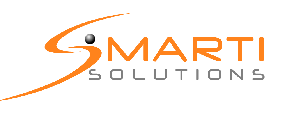As an agency search consultant, I'm always asked what are the biggest blunders that agencies make in new business pitches. Does your agency win most of the time? Here's some advice on how to avoid common pitfalls and create a better connection with prospective clients:
Thoughtful Timing
Starting late always happens. Traffic delays. Technology troubles connecting a laptop. Lengthy introductions. Somehow 20 minutes disappear and the CEO's phone goes off. She leaves the room and you don't see her again. Time is valuable. Start promptly. Assume a third of the meeting time should be allocated to capabilities and experience and a third of the time focused on getting to the heart of clients' challenges. Assume the last third may evaporate. If you have it, use it for thought-provoking conversation. Always arrive early. It's easy to fill 15 minutes. You might even snag time with the client prior to the meeting, a more optimal time for chitchat. Make the most of your face-to-face opportunity.
Daunting Decks
Credentials and connection are equally important. If you're spending most of your time presenting your deck instead of making conversation, you're doing something wrong. It's a meeting - not a read-a-long. Keep the energy focused on you and not the screen. Use the presentation as a show-and-tell to highlight relevant experience through "eye-candy" -client logos, screen shots, results-oriented statistics-stuff that has a wow effect. Keep the presentation short and limit the text. For an hour meeting, don't exceed 30 slides and make sure you get through it in 20 minutes. Anything else that feels necessary should be glossed over and used as a leave behind, or put in an appendix. Take the time to create chemistry.
Presenting Pizazz
Your agency may talented, yet selling this experience requires entirely different skills. Agency principals are not always the best presenters. The same goes for junior folks. Not everyone has charisma. If team members don't present well, it's best for them to lead the post-capabilities conversation and ask smart questions; this keeps the focus on their strengths. Clients like to meet the day-to-day team that will be working on their account. Everyone in the meeting should have a role, or they are just and taking up space and sapping energy from the room. If presenting is not your team's strong suit, get coached on how to do it better. Best practices can be trained.
Building this relationship boils down to being present and making a meaningful connection. Proper planning can make or break your next pitch.
Subscribe to:
Post Comments (Atom)




No comments:
Post a Comment